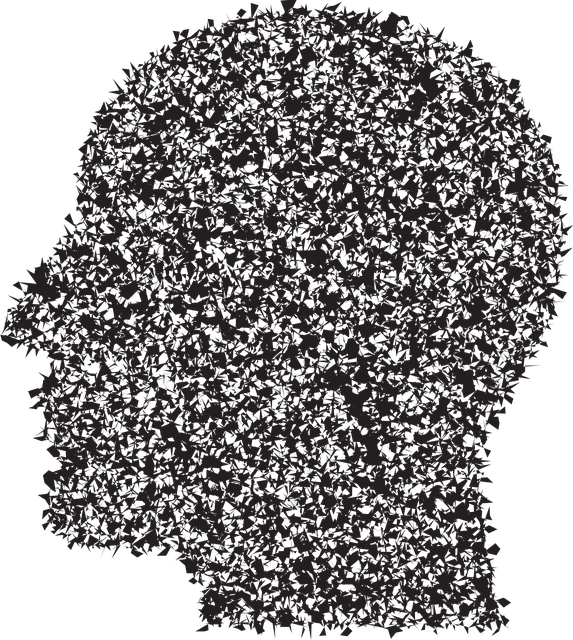Depression among elderly Mandarin Chinese speakers is a growing concern due to cultural and linguistic barriers, as well as stigma surrounding mental health. Culturally sensitive approaches focusing on self-care practices, positive thinking, and social connections are crucial. Tailored programs aimed at improving mental well-being, building confidence, and encouraging open dialogue about mental health can empower seniors to seek help for therapy for elders Mandarin Chinese speaking. Combining traditional Chinese medicine with Western psychotherapy shows promise in enhancing therapy effectiveness. Building support networks through community outreach and cultural-specific psychological services significantly reduces elderly Mandarin speakers' stress and loneliness. Healthcare providers trained in cultural competency better meet diverse ethnic needs, offering personalized guidance like mood journal keeping to promote emotional well-being.
Depression among the elderly, particularly within the Mandarin-speaking community, is a growing concern. This article explores comprehensive strategies to prevent this pervasive issue. We delve into understanding the nuances of depression in older adults with cultural considerations specific to Mandarin Chinese speakers. Effective therapeutic approaches, tailored for their unique needs, offer hope and healing. Additionally, we emphasize the significance of building robust support systems and promoting well-being within these communities, focusing on therapy for elders speaking Mandarin Chinese as a key component to fostering resilience and mental health.
- Understanding Depression in Elderly Mandarin Chinese Speakers
- The Role of Cultural Sensitivity in Therapy
- Effective Therapeutic Approaches for Depression Prevention
- Building Support Systems and Promoting Well-being
Understanding Depression in Elderly Mandarin Chinese Speakers

Depression among elderly Mandarin Chinese speakers is a growing concern, often misunderstood due to cultural and linguistic barriers. In many cases, those in this demographic face unique challenges that can contribute to feelings of isolation, loneliness, and ultimately, depression. The stigma surrounding mental health discussions within some Asian communities further complicates access to therapy for elders who may be struggling silently.
Culturally sensitive approaches are essential when addressing depression prevention strategies for this population. Encouraging self-care practices tailored to their values, such as meditation or spending time in nature, can be beneficial. Moreover, promoting positive thinking and fostering social connections through community programs or support groups specifically designed for elderly Mandarin speakers could significantly contribute to improving mental well-being. Building confidence through these initiatives can empower them to seek help when needed and encourage open dialogue about mental health concerns.
The Role of Cultural Sensitivity in Therapy

In the context of depression prevention strategies, especially for vulnerable populations like the elderly Mandarin Chinese speaking community, cultural sensitivity in therapy plays a pivotal role. Mental health awareness among older adults, many of whom may have migrated or been raised in cultures vastly different from mainstream society, requires tailored approaches that respect their unique backgrounds and values. Therapists who are adept at incorporating empathy building strategies into their practice can bridge the gap between cultural barriers, fostering trust and openness essential for effective treatment.
Understanding and accommodating cultural nuances in therapy sessions not only enhances the mental health awareness of elders but also facilitates better stress management. By recognizing and addressing potential cultural conflicts or misunderstandings, therapists can create a safe and supportive environment where Mandarin Chinese speaking seniors feel comfortable discussing their feelings and experiences. This personalized approach is crucial for successful depression prevention, ensuring that interventions are culturally relevant and resonate with individuals’ life stories.
Effective Therapeutic Approaches for Depression Prevention

对于老年人来说,寻找有效的治疗方法来预防抑郁是至关重要的。针对老年人群的心理健康服务需要考虑文化差异和语言障碍。根据研究,结合中医理念和西方心理疗法的治疗为 Elders 提供定制化的方案,可以显著提升疗效。例如,中医调理与认知行为疗法(CBT)相结合,可以帮助老年人改善情绪调节能力,培养积极思考的习惯。
此外,鼓励老年人参与自我护理实践是预防抑郁的重要策略。这包括定期锻炼、均衡饮食、充足睡眠以及培养兴趣爱好等。这些日常习惯不仅能提升身体健康,还能增强心理韧性,为应对压力和情绪低落提供有力支持。通过专业的指导和个性化的治疗计划,可以有效地帮助老年人建立积极的心态,远离抑郁阴影。
Building Support Systems and Promoting Well-being

建立支持系统和促进健康是预防抑郁症的关键。对于老年人来说,建立一个强有力的支持网络至关重要。这可以包括家庭成员、朋友或社区团体。定期与他人交流,分享感受和经历,可以有效减轻压力和孤独感。在Mandarin中国语社区中,可以实施社区外展计划,为老年人提供适合他们文化的心理健康服务和资源。
此外,鼓励老年人参与各种活动和兴趣小组也非常有益。这些活动不仅能增强他们的社会联系,还能提升自我价值感和成就感。医疗保健提供者可以通过文化能力培训,更好地了解和尊重不同族裔的心理健康需求。提供个性化指导和支持,如指导进行日记式心情记录,可以帮助老年人识别和管理情绪,从而促进整体心理健康与幸福感。
Depression among elderly Mandarin Chinese speakers is a growing concern, but through cultural sensitivity in therapy and effective therapeutic approaches tailored to their needs, we can significantly prevent and manage this condition. Building robust support systems and promoting well-being are essential components of this strategy, ensuring that this vulnerable population receives the care they deserve. For optimal results, it’s crucial to integrate these prevention strategies within accessible and culturally competent healthcare settings, specifically targeting therapy for elders speaking Mandarin Chinese.








